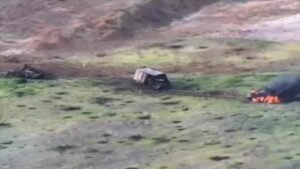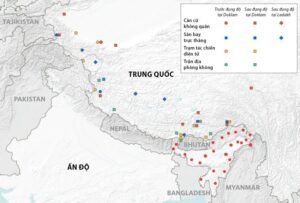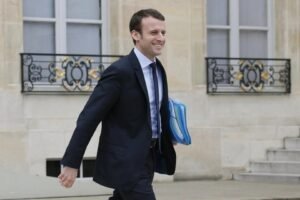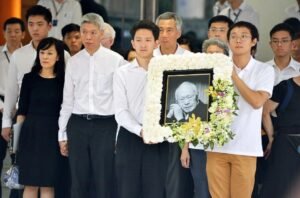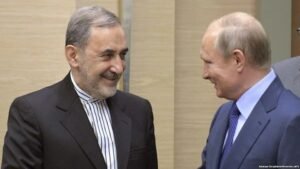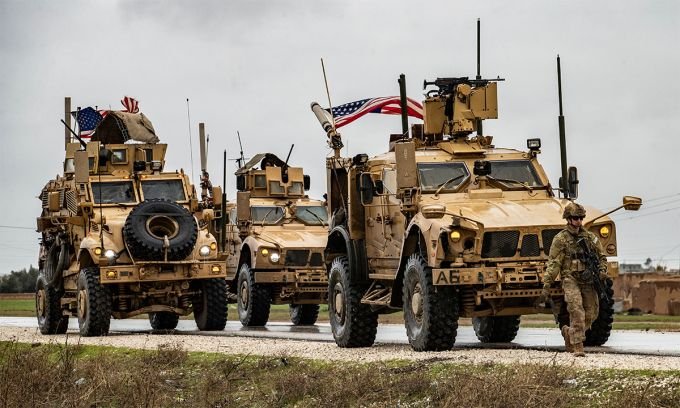
Syria accused American soldiers of stealing wheat 3
Syrian state news agency SANA on May 24 quoted local sources as saying that 35 US military trucks filled with wheat `stolen from the Tal Alou warehouse` in the al-Yaarubyia area, Hasakah province were transferred through the border gate.
A few hours later, another convoy of 11 trucks from the US military also crossed into Iraqi territory through Syria’s al-Waleed border gate.
A day earlier, a convoy of 86 trucks carrying weapons and logistics supplies was escorted by dozens of US armor from northern Iraq, through al-Waleed border gate and into Kharab al-Jir military base.
The US armored convoy stopped next to Highway M4 running through the town of Tal Tamr, Hasakah province, Syria in January 2020.
The Pentagon sent troops and equipment to northeastern Syria to prevent oil fields in the region from falling into the hands of the self-proclaimed Islamic State (IS).
Bassam Tomeh, Minister of Petroleum and Mineral Resources of Syria, said on March 18 that `the US and its allied Islamic terrorist groups are stealing oil` from this Middle Eastern country, saying Washington is controlling 90% of it.
`The Americans and their allies are targeting Syria’s oil prosperity. Their oil tanker convoys are nothing more than bandits,` Tomeh said.
US officials first confirmed Syria’s oil trade during a Senate hearing at the end of July 2020, with the participation of Senator Lindsey Graham and former Secretary of State Mike Pompeo.
The Syrian government strongly condemned the agreement and said it was aimed at `robbing their natural resources`, including oil and gas, which was supported and funded by the administration of former US president Donald Trump.
In June 2020, the US issued the Caesar Act, imposing the heaviest sanctions on Syria with the purpose of cutting the country’s government’s budget revenue.

Location of Hasakah province in northeastern Syria.
US sanctions prohibit foreign companies from doing business with Syria, paralyzing the Middle Eastern country’s economy.
Syria accused the above measures of putting pressure on its people and their livelihoods, calling it an `inhumane attempt to suffocate civilians`.

